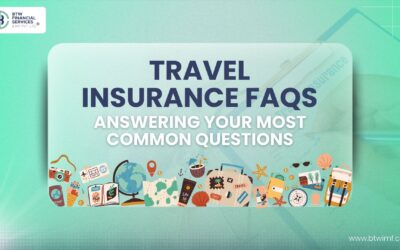Why Indians Should Never Travel Without Insurance
Summary
- Key Risks: Indian travelers face medical emergencies, trip cancellations, travel delays, lost luggage, natural disasters, and personal liability when abroad.
- Consequences Without Insurance: Financial hardship, reduced access to quality care, and increased stress.
- Benefits of Travel Insurance:
- Financial protection
- Reduced stress
- Access to quality care
- 24/7 travel assistance
- Actionable Tips for Indians:
- Choose destination-specific and activity-based coverage
- Check for pre-existing condition coverage
- Select reputable Indian insurers (e.g., ICICI Lombard, Bajaj Allianz, Tata AIG etc.)
- Purchase insurance early and read policy documents carefully.
Table of Content
- Introduction
- Key Risks Faced by Indian Travelers Abroad
- The Consequences of Not Having Travel Insurance for Indians
- Benefits of Purchasing Travel Insurance for Indian Travelers
- Choosing the Right Travel Insurance Policy for Your Indian Passport
- Real-Life Scenarios for Indian Travelers: With and Without Insurance
- Special Considerations for Indians Traveling Abroad
- Appendix: Quick Tips for Buying Travel Insurance in India
- Conclusion
- Frequently Asked Questions (FAQ’s)
1. Introduction
As Indians venture out to explore the world, whether for leisure, business, or education, it’s essential to remember that unforeseen circumstances can arise, putting a damper on your travel plans and finances. Travel insurance, often overlooked, is a crucial safeguard for Indian travelers. This guide highlights the importance of travel insurance, risks of traveling without it, and provides tips on selecting the right coverage for Indian passport holders.
2. Key Risks Faced by Indian Travelers Abroad
- Medical Emergencies: Sudden illnesses or accidents in foreign countries with exorbitant medical bills.
- Trip Cancellations or Interruptions: Last-minute cancellations due to family emergencies or travel restrictions, leading to loss of prepaid expenses.
- Travel Delays and Missed Connections: Flight delays or missed connections resulting in additional costs for accommodations and rebooked flights.
- Lost, Stolen, or Damaged Luggage: Theft or loss of luggage, including essential documents and valuables.
- Natural Disasters and Political Unrest: Evacuations or travel advisories due to unforeseen natural disasters or political instability.
- Personal Liability: Accidental damage to property or third-party injuries, leading to significant liability costs.
3. The Consequences of Not Having Travel Insurance for Indians
- Financial Hardship: Unexpected expenses can lead to significant financial strain on individuals and families back in India.
- Reduced Access to Quality Care: Without insurance, Indians might opt for cheaper, potentially lower-quality medical care abroad.
- Increased Stress: Financial uncertainty of unforeseen events can greatly increase travel stress.
4. Benefits of Purchasing Travel Insurance for Indian Travelers
- Financial Protection: Against unforeseen medical, travel, and luggage-related expenses.
- Reduced Stress: Knowing you’re covered in emergencies, allowing for a more enjoyable travel experience.
- Access to Quality Care: Ensuring Indians can afford the best available medical care abroad.
Travel Assistance: Many policies offer 24/7 travel assistance for navigating unfamiliar foreign situations.
5. Choosing the Right Travel Insurance Policy for Your Indian Passport
- Destination-Specific Risks: Consider the specific risks associated with your travel destination (e.g., health risks in certain African countries).
- Activity-Based Coverage: Ensure coverage if engaging in adventure activities (e.g., skiing in the Alps).
- Pre-existing Conditions: Look for policies that cover managed conditions, a common requirement for Indian travelers.
- Check with Indian Insurers: Companies like ICICI Lombard, Bajaj Allianz, and Tata AIG offer tailored plans for Indian travelers.
6. Real-Life Scenarios for Indian Travelers: With and Without Insurance
- Scenario: An Indian student in the US requires emergency appendectomy surgery.
- Without Insurance: ₹500,000 in medical bills, leading to financial hardship for the family in India.
- With Insurance: ₹0 out-of-pocket, with the insurance company covering all medical expenses.
7. Special Considerations for Indians Traveling Abroad
- Schengen Visa Requirements: Ensure your policy meets the minimum requirements for Schengen countries.
- US and Canadian Requirements: Some policies are specifically designed for these destinations, offering more comprehensive coverage.
Senior Citizen Insurance plans and Student Plans: Many Indian insurers offer specialized plans with additional benefits for these groups.
8. Appendix: Quick Tips for Buying Travel Insurance in India
- Purchase Early: Buy insurance as soon as you book your trip to cover pre-departure cancellations.
- Policy Comparison: Use online platforms to compare plans from various Indian insurers.
- Check for Existing Coverage: Verify if your credit card or existing insurance policies offer travel insurance benefits.
- Read Policy Documents Carefully: Understand what’s covered and what’s not to avoid last-minute surprises
- Insurance Advice: Seek Expert Insurance Advice from Professionals
9. Conclusion
For Indian travelers, navigating the complexities of foreign lands is challenging enough without the added worry of unforeseen expenses. By investing in the right travel insurance policy, Indians can safeguard their travel dreams and financial well-being.
Frequently Asked Questions (FAQs):
Q: Is travel insurance mandatory for Indians traveling abroad?
A: While not always mandatory, it’s highly recommended. Some countries (e.g., Schengen states) require proof of travel insurance for visa applications
Q: What does travel insurance typically cover?
A: Medical emergencies, trip cancellations/interruptions, travel delays, lost/stolen/damaged luggage, and personal liability.
Q: Can I buy travel insurance after I’ve already started my trip?
A: Some policies allow this, but coverage for pre-existing conditions or events that occurred before policy purchase might be excluded.
Q: What is the difference between single-trip and multi-trip travel insurance?
A: Single-trip covers one specific trip, while multi-trip (annual) covers all trips within a year, often more cost-effective for frequent travelers.
Q: Can I customize my travel insurance policy?
A: Yes, many insurers offer add-ons (e.g., adventure sports coverage, rental car insurance) to tailor your policy to your needs.
Q: What documents are usually required to file a travel insurance claim?
A: This varies, but commonly includes policy documents, identification, proof of travel, and evidence supporting your claim (e.g., medical bills, receipts).





